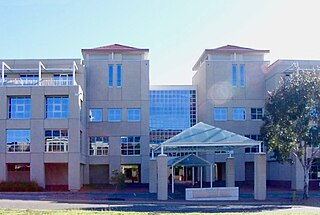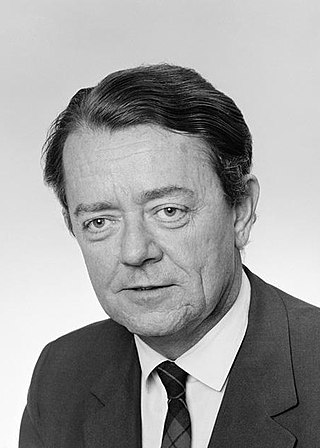The Australian Security Intelligence Organisation is the domestic intelligence and national security agency of the Commonwealth of Australia, responsible for the protection of the country and its citizens from espionage, sabotage, acts of foreign interference, politically motivated violence, terrorism and attacks on the national defence system. ASIO is a primary entity of the Australian Intelligence Community.

The Australian Secret Intelligence Service is the foreign intelligence agency of the Commonwealth of Australia, responsible for gathering, processing, and analysing national security information from around the world, primarily through the use of human intelligence. The service was formed in 1952, however its existence remained secret within much of the government and to the public until 1972. ASIS is a primary entity of the Australian Intelligence Community.

The Australian Signals Directorate (ASD), formerly the Defence Signals Directorate, is a statutory agency of the Government of Australia responsible for signals intelligence, providing intelligence support to Australian military operations, conducting cyberwarfare and ensuring information security. The ASD is a part of the larger Australian Intelligence Community, and its role within the so-called Five Eyes intelligence-sharing alliance is to monitor signals intelligence in South and East Asia. The Australian Cyber Security Centre (ACSC) is an agency within the ASD.

The Office of National Assessments (ONA) was an Australian statutory intelligence agency established by the Office of National Assessments Act 1977 as an independent statutory body directly accountable to the Prime Minister of Australia as a portfolio agency of the Department of the Prime Minister and Cabinet. ONA provided all-source assessments on international political, strategic and economic developments to the Prime Minister and the National Security Committee of Cabinet. ONA also played a coordination role in the Australian Intelligence Community through evaluating foreign intelligence products, convening the National Intelligence Coordination Committee, and developing relationships with intelligence agencies around the world.

Anthony Michael Byrne is a former Australian politician. A member of the Australian Labor Party in the Australian House of Representatives, he was one of federal parliament's longest-serving members, having first entered Parliament in November 1999, representing the Division of Holt in Victoria. He was forced to resign as the deputy chair of the Parliamentary Joint Committee on Intelligence and Security providing oversight of Australia's security services after he made admissions of corruption and branch-stacking at Victoria's Independent Broad-based Anti-corruption Commission and did not re-contest the subsequent 2022 federal election.
David Francis Jull was an Australian politician. He was a long-serving Liberal member of the Australian House of Representatives, representing the Division of Bowman, Queensland, from 1975 to 1983 and Fadden, Queensland, from 1984 to 2007.
Three anti-terrorism bills were enacted in the Australian Parliament in 2004 by the Howard Coalition government with the support of the Labor Opposition. These were the Anti-terrorism Bill 2004, the Anti-terrorism Bill 2004 and the Anti-terrorism Bill 2004.
The Intelligence Services Amendment Act 2004 was passed by the Parliament of Australia on 1 April 2004 as an amendment to the Intelligence Services Act 2001 (ISA) to grant controversial new powers to the Australian Secret Intelligence Service. The bill reverses ISA prohibitions on ASIS operatives carrying firearms and allows ASIS to work with foreign intelligence agencies to carry out paramilitary and violent activities provided ASIS is not involved in the execution of the operations.
The Intelligence Services Act 2001 (ISA) is an Act of the Parliament of Australia, which made significant changes to the Australian Intelligence Community (AIC). The bill was introduced into Parliament on 27 June 2001 by then Minister for Foreign Affairs Alexander Downer. The Act was passed by Parliament on 29 September 2001 and came into effect on 29 October 2001.
The Australian Intelligence Community (AIC) and the National Intelligence Community (NIC) or National Security Community of the Australian Government are the collectives of statutory intelligence agencies, policy departments, and other government agencies concerned with protecting and advancing the national security and national interests of the Commonwealth of Australia. The intelligence and security agencies of the Australian Government have evolved since the Second World War and the Cold War and saw transformation and expansion during the Global War on Terrorism with military deployments in Afghanistan, Iraq and against ISIS in Syria. Key international and national security issues for the Australian Intelligence Community include terrorism and violent extremism, cybersecurity, transnational crime, the rise of China, and Pacific regional security.
The Inspector-General of Intelligence and Security (IGIS) is an independent statutory office holder in the Commonwealth of Australia responsible for reviewing the activities of the six intelligence agencies under IGIS jurisdiction. With own motion powers in addition to considering complaints or requests from ministers, IGIS is a key element of the accountability regime for Australia’s intelligence and security agencies.

John Murray Wheeldon was an Australian politician and journalist. He was a member of the Australian Labor Party (ALP) and a senator for Western Australia from 1965 to 1981. He held ministerial office in the Whitlam government as Minister for Repatriation and Compensation (1974–1975) and Minister for Social Security (1975). He was known for his views on Australian foreign policy and after leaving politics became an editorial writer for The Australian.
The Royal Commission on Intelligence and Security (RCIS), also known as the First Hope Commission, was a Royal Commission established on 21 August 1974 by Prime Minister of Australia Gough Whitlam to reach findings and make recommendations as to the Australian Intelligence Community.
Mass surveillance in Australia takes place in several network media, including telephone, internet, and other communications networks, financial systems, vehicle and transit networks, international travel, utilities, and government schemes and services including those asking citizens to report on themselves or other citizens.

The Telecommunications Act 1979 is an Act of the Parliament of Australia which prohibits the unauthorised interception of communications or access to stored communications, with certain exceptions. The Act was amended by the Telecommunications Amendment Act 2015.

The Telecommunications (Interception and Access) Amendment (Data Retention) Act 2015(Cth) is an Act of the Parliament of Australia that amends the Telecommunications (Interception and Access) Act 1979 (original Act) and the Telecommunications Act 1997 to introduce a statutory obligation for Australian telecommunication service providers (TSPs) to retain, for a period of two years, particular types of telecommunications data (metadata) and introduces certain reforms to the regimes applying to the access of stored communications and telecommunications data under the original Act.

James William Paterson is an Australian politician who has been a Senator for Victoria since 2016, representing the Liberal Party. He was appointed to Peter Dutton's shadow ministry following the Coalition's defeat at the 2022 federal election.

The National Intelligence Coordination Committee (NICC) is a peak intergovernmental officials-level body of the Government of Australia responsible for the development and co-ordination of the Australian Intelligence Community in accordance with the National Security Committee of Cabinet. The NICC is chaired by the Director-General of the Office of National Intelligence.
The Independent National Security Legislation Monitor (INSLM) is a statutory independent executive oversight body of the Australian Government responsible for the ongoing review of the operation, effectiveness and implications of Australian counter‑terrorism and national security legislation. The INSLM also considers whether legislation contains appropriate safeguards for protecting the rights of individuals, remains proportionate to any threat of terrorism and or threat to national security, and remains necessary. As such the INSLM is a major part of the oversight regime of the Australian Intelligence Community together with the Inspector-General of Intelligence and Security and the Parliamentary Joint Committee on Intelligence and Security.

Raffaele "Raff" Ciccone is an Australian politician who is a Senator for Victoria, representing the Australian Labor Party. He was appointed to the Senate on 6 March 2019 following the resignation of Jacinta Collins, becoming the 100th Senator to represent the state of Victoria.







